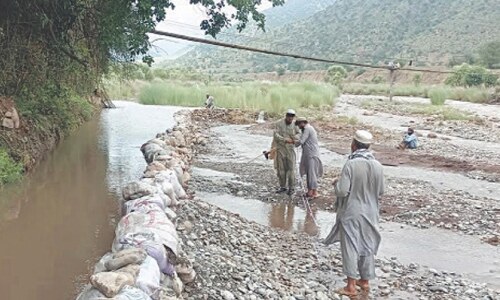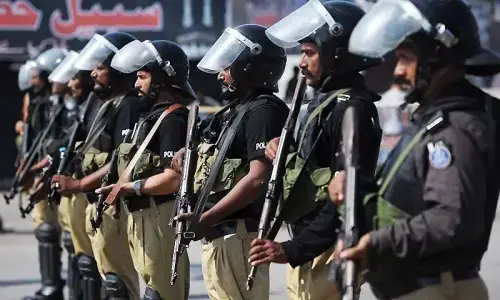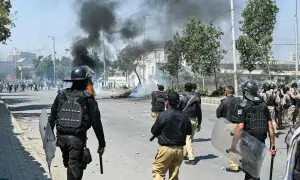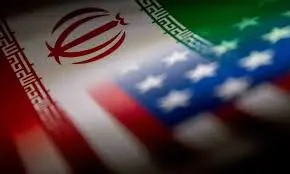PESHAWAR: The Afghan Kochi dress with mirror work also known as ‘Gagra’ has gained widespread popularity in Khyber Pakhtunkhwa and tribal areas. Women throng cloth stores having stock of the dress in and around Peshawar city, especially during wedding season.
Introduced by Afghan refugees in 80s, mostly Kochi (nomad) Afghan Pashtun tribe, the dress has travelled to Peshawar and other cities of Khyber Pakhtunkhwa and Fata and even Rawalpindi and Islamabad. The beautiful mirror work all over the dress fascinates the women of all age groups.
The Kochi dress is available in Meena Bazaar, Kochi Bazaar, Peshawar Saddar, and cloth stores on the University Road, Arbab Road and Board Bazaar and Karkhano Market.
Mirror work all over the dress called ‘Gagra’ fascinates women
Rafia Baseer, a resident of Lahore, who travelled along with her two daughters and a son to Peshawar Meena Bazaar, said that Afghan Kochi dress was also available in Rawalpindi, but she had come to Peshawar to get the dress of finest quality. “It is my third time to visit Peshawar. This time, my visit is special because I want to buy six suits of Kochi dress, two each for myself and my daughters,” she said.
Mrs Baseer said that they had planned to wear those suits on wedding ceremony of her cousin to be held next week. “I love Afghan Kochi dress, it is a ceremonial dress which lends an additional beauty and grace to one’s personality,” she remarked.
Mohammad Wali, a storekeeper at Meena Bazaar, told this scribe that in the past 80 per cent work on the Kochi dress had been done by women manually in homes, but now it had reduced to only 20 per cent handiwork.
He said that skilled tailors, mostly male, had tailored the fascinating dress attracting women of all age groups. A single Kochi dress for adult, he said, was available from Rs2,500 to Rs5,000 depending on the quality and handiwork on the suit.
He said that cloth of a fine quality had been brought from Faisalabad and other cities of Punjab and then local tailors put it into traditional attire.
He said that he had been receiving buyers from Lahore, Islamabad and Karachi. “Normally, women love to wear this dress on festive occasions, especially on wedding events.
Local residents buy Kochi dress as gift for their friends and relatives living abroad. After all, it has become a symbol of culture. It is a dignified cultural attire,” Mr Wali said.
Zarka Haleem Shinwari, a resident of Kohat, told this scribe that Kochi dress was an elegant and typical Pashtun women’s wear. She said that handiwork with fancy floral patterns on the Kochi dress had lent a charming look to it, and the fashion designers in Lahore, Karachi and other big cities had appreciated its overall shape. “The texture, stitching and mirror mosaic make the Kochi dress quite unique,” she said.
Sajjad Rahim, a salesman at an Afghan boutique on Arbab Road, said that Kochi dress was fast becoming a summer sensation for women.
He said that the demand for Kochi cultural dress had been increasing with the passage of time. “Most Afghan dealers have left, but still if local designers opts for ‘Gagra’ business, it could be marketed abroad,” he suggested.
Published in Dawn, April 2nd, 2017































